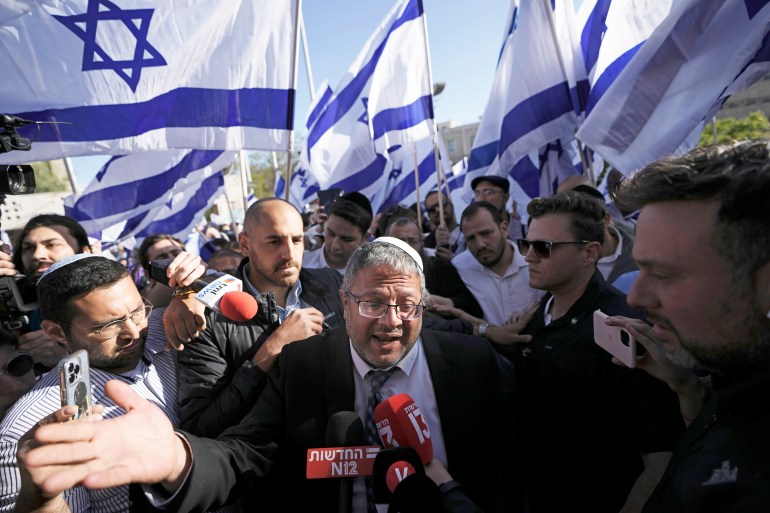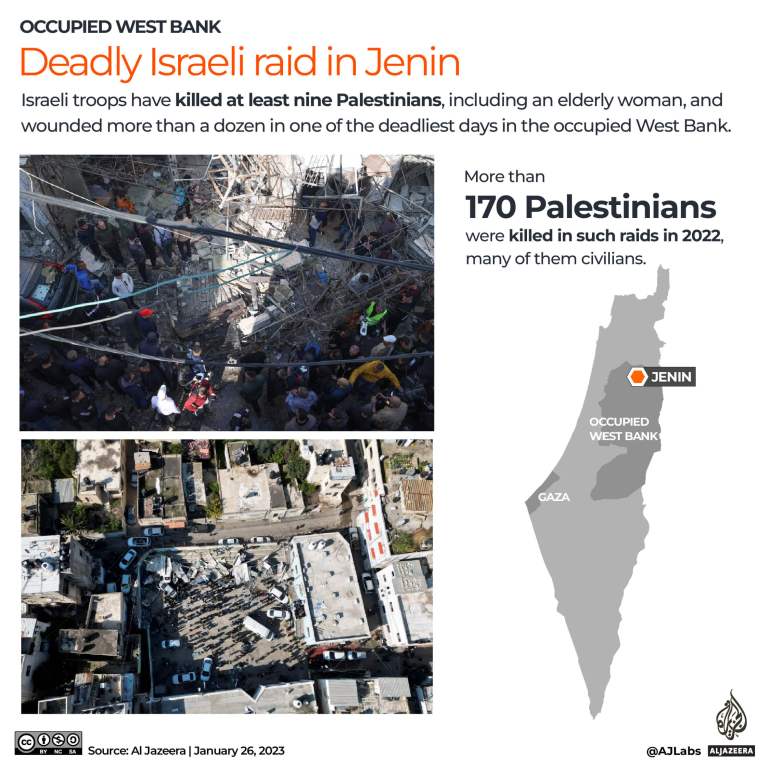The meeting in Cairo on Sunday was hosted by the Arab League and attended by President Abdel Fattah el-Sisi of Egypt, Jordan’s King Abdullah II, and Palestinian President Mahmoud Abbas along with many foreign ministers and senior officials.
The high-level gathering came amid one of the deadliest periods of violence in years. Israelis have killed at least 42 Palestinians so far this year. Ten people on the Israeli side were killed during that time.
Abbas said Palestinians were facing a “lethal assault” in the occupied West Bank and occupied East Jerusalem, and he urged world leaders to put an end to Israel’s actions.
The international community must “protect” the Palestinian people and “put a stop to Israeli aggression… [and] unilateral actions”, he told the Arab League meeting.
“Israeli intransigence and practices have crossed all red lines,” said Abbas.
In the latest violence, Israeli troops killed a 14-year-old Palestinian boy during a raid in Jenin in the occupied West Bank on Sunday, which led to clashes with gunmen.
Stronger response
Speakers at the meeting condemned Israel’s “unilateral measures”, including home demolitions and expanding settlements.
They also condemned visits by Israeli officials to Jerusalem’s contested holy site, which is sacred to both Jews and Muslims and has often been the epicentre of unrest.
Meanwhile, Israeli Prime Minister Benjamin Netanyahu on Sunday promised a stronger Israeli response in dealing with the Palestinians, but did not offer any specific measure.
However, Itamar Ben-Gvir, Netanyahu’s far-right national security minister, said police had already begun a major enforcement campaign in occupied East Jerusalem that would include measures from handing out traffic tickets to demolishing houses of Palestinian attackers.

Back in Cairo, Arab officials also voiced support for Jordan’s role as custodian of the Al-Aqsa Mosque, the third-holiest site in Islam. The mosque is built on a hilltop in Jerusalem’s Old City that is also a sacred site for Jews.
Calling Jerusalem “the backbone of the Palestinian cause”, el-Sisi warned of dire repercussions of any Israeli move to change the status quo of the holy site, saying they would “negatively impact” future negotiations to settle the Israeli-Palestinian conflict.
He said such measures would impede the long-sought-after two-state solution to the conflict, which would leave “both parties and the whole Middle East with difficult and grave options”.
El-Sisi, whose country Egypt was the first Arab nation to establish diplomatic ties with Israel, called on the international community to “reinforce the two-state solution and create conducive conditions for the resumption of the peace process”.
King Abdullah II also called for Israel to cease its violations and incursions into the Al-Aqsa Mosque.
“The region cannot live in peace, stability, and prosperity without any progress made on the Palestinian cause,” he said.

Ahmed Aboul Gheit, secretary-general of the pan-Arab organisation, also warned that attempts to partition the Al-Aqsa Mosque and obliterate its Arab and Islamic identity “would fuel endless unrest and violence”.
Abbas said his administration would resort to the United Nations and its agencies and demand a resolution to protect the two-state solution to the conflict.
“The State of Palestine will continue going to international courts and organisations to protect our people’s legitimate rights,” he said.
The ongoing bout of violence has put the region on edge. Last month, United States Secretary of State Antony Blinken met with Egyptian, Israeli, and Palestinian leaders and urged them to ease tensions.
